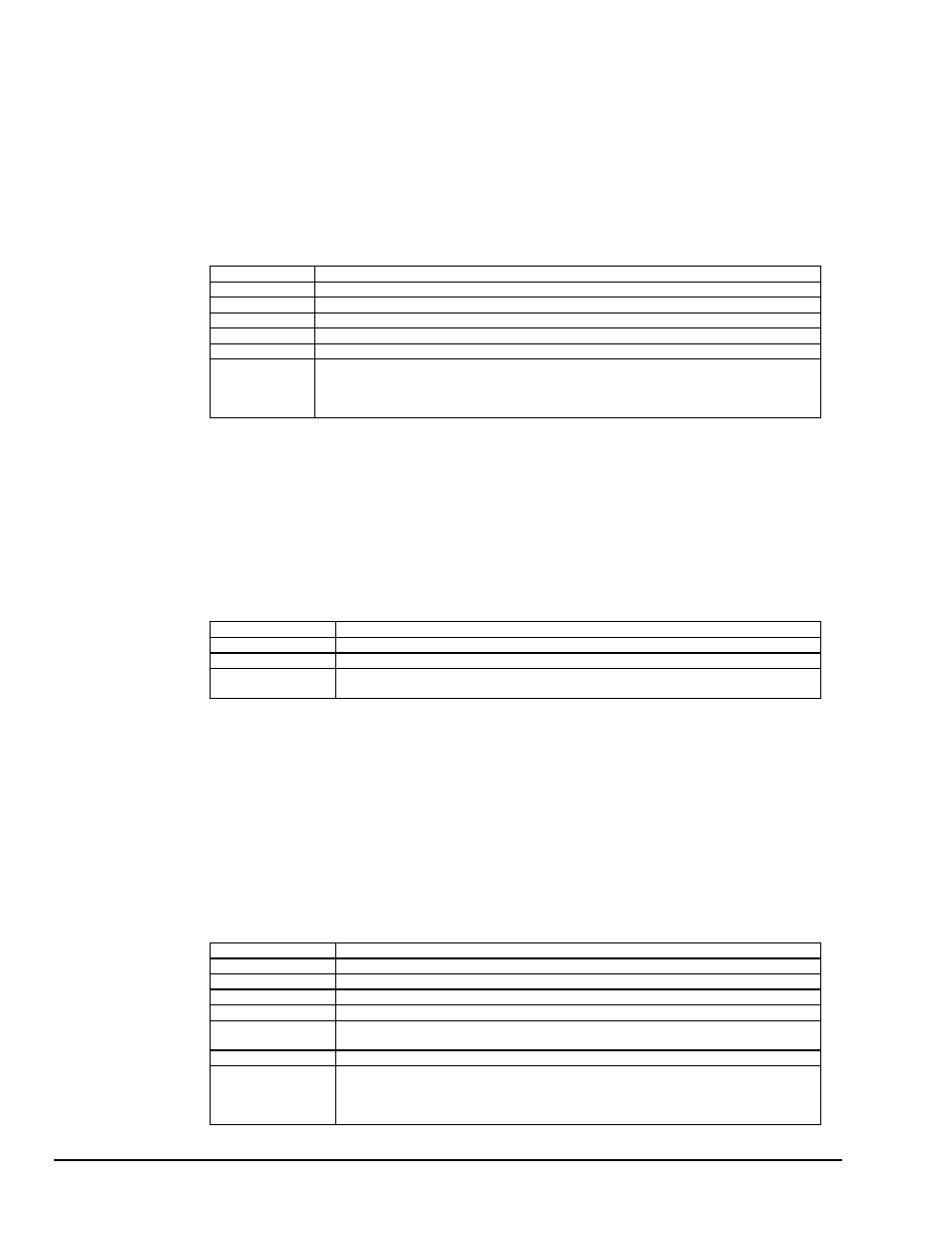Multiple-channel measurement (tbkrdtempscan) – Measurement Computing TempBook rev.3.0 User Manual
Page 60

8-4 Thermocouple Measurement
TempBook User’s Manual
Multiple Measurements from a Single Channel (tbkRdTempN)
The tbkRdTempN function uses pacer clock triggering to acquire multiple samples from the specified
analog input channel and CJC and shorted channel readings for linearization and zero compensation. The
CJC and thermocouple readings are zero compensated and the thermocouple readings are linearized. The
converted temperatures are placed in an array supplied by the calling program. If block averaging is used, a
single temperature is returned; otherwise, a number of temperatures equal to the number of scans specified
are returned. (Note: Further details in Command Reference chapter.)
tbkRdTempN( uint chan, uchar tcType, uint count, int * temp, uint * buf,
float freq, uint avg )
uint chan
The channel number to which the thermocouple is attached.
uint tcType
The type of thermocouple attached.
uint count
The number of scans to read.
int *temp
A variable in which to store the measured temperature.
uint* buf
An array for the temporary storage of raw scan data (must be at least 4*count in length).
float freq
The scan interval frequency.
uint avg
Type of averaging to be used.
0 - block averaging
1 - no averaging
2 - moving averaging
Multiple-Channel Measurement (tbkRdTempScan)
The tbkRdTempScan function uses software triggering to immediately acquire one sample from the
specified range of analog input channels. All of these channels must be of the same thermocouple type,.
This function also collects CJC and shorted channel readings for linearization and zero compensation. The
CJC and thermocouple readings are then zero compensated and the thermocouple readings are linearized.
The converted temperatures are then placed in an array supplied by the calling program. (Note: Further
details in Command Reference chapter.)
tbkRdTempScan(uint startChan, uint endChan, uchar tcType, int * temp)
uint startchan
The starting channel number of the range of thermocouple channels to read.
uint endChan
The ending channel number of the range of thermocouple channels to read.
uint tcType
The type of thermocouple attached.
int *temp
An array in which to store the measured temperatures (must be at least endChan -
startChan + 1 in length).
Multiple Measurements from Multiple Channels (tbkRdTempScanN)
The tbkRdTempScanN function uses pacer clock triggering to acquire multiple samples from the
specified range of analog input channels. All of these channels must be of the same thermocouple type.
This function also collects CJC and shorted channel readings for linearization and zero compensation. The
CJC and thermocouple readings are then zero compensated and the thermocouple readings are linearized.
The converted temperatures are placed in an array supplied by the calling program. If block averaging is
specified, then a single temperature is returned for each channel; otherwise, a number of temperatures equal
to the number of scans time the number of channels specified are returned. (Note: Further details in
Command Reference chapter.)
tbkRdTempScanN(uint startChan, uint endChan, uchar tcType, uint count, int *
temp, uint * buf, float freq, uint avg)
uint startchan
The starting channel number of the range of thermocouple channels to read.
uint endChan
The ending channel number of the range of thermocouple channels to read.
uint tcType
The type of thermocouple attached.
uint count
The number of scans to read.
int *temp
A variable in which to store the measured temperature.
uint *buf
An array for the temporary storage of raw scan data (must be at least [endChan -
startChan + 4] *count in length).
float freq
The scan interval frequency.
uint avg
Type of averaging to be used.
0 - block averaging
1 - no averaging
2 - moving averaging